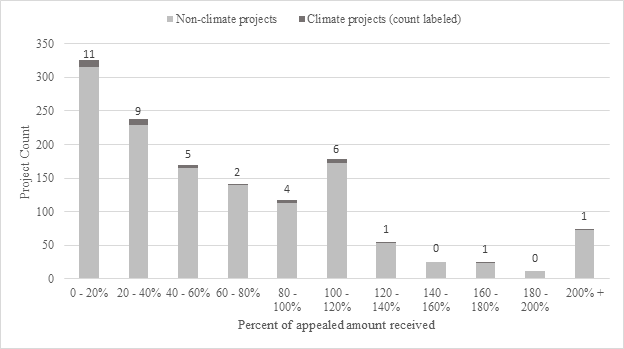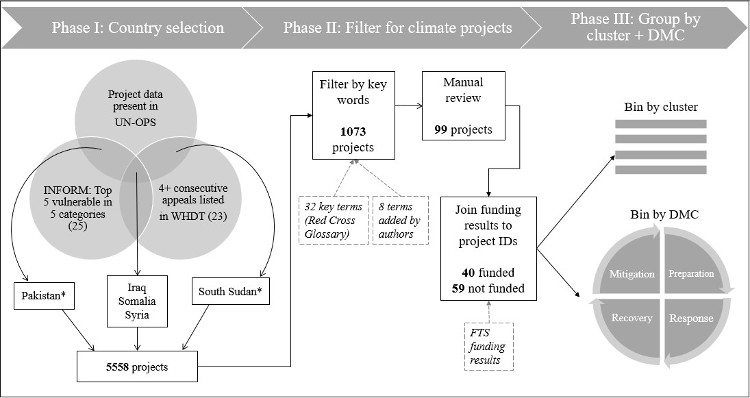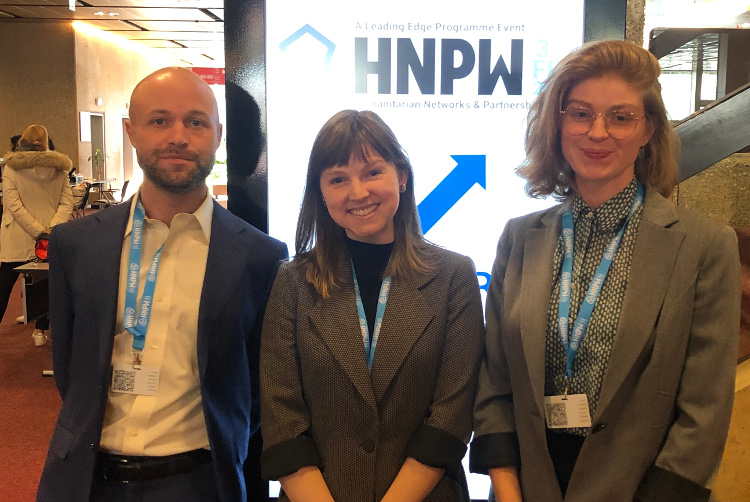Humanitarian Spending on Climate Change
“Quantifying climate change relevant humanitarian programming and spending across five highly disaster vulnerable countries”

View accepted article View on ReliefWeb
Click to view citation:
Accepted, in press. McCann, B. T., Davis, J., Osborne, D., Durham, C., O’Brien, M., and Raymond, N. A. (2021). Quantifying climate change relevant humanitarian programming and spending across five highly disaster vulnerable countries. Disasters. doi.org/10.1111/disa.12453
Duration: Oct 2019 - Dec 2019
Affiliation: Yale School of Environment
What: Extra-curricular research project
My Role: Assisted heavily with manuscript writing and revision. Double-checked all statistics from another team member.
The Problem
Climate change is increasing the severity and frequency of natural hazards and associated disasters worldwide. Yet, there is little data tracking how and whether climate change is being addressed by humanitarian assistance programs. In fact, there is currently no standard approach for tracking funding for, or evaluating the impact of, programmatic responses by humanitarian actors that relate to climate change. These methodologies can be expanded to additional countries and may be used to understand how humanitarian climate change efforts evolve over time.
Inspired by co-author Jenna Davis’s final paper in Nathaniel Raymond’s course Humanitarian Aid, a team of students undertook this study to address this “tracking gap”.
Our Approach:
At its core, this was a text analysis project. In the absence of a definition for which humanitarian projects consider climate change or not, we created our own: If a request for funding contains 2+ vetted key words from the humanitarian aid literature, it is categorized as a climate change related project.
To test our classification method, my teammates scraped 5000+ official requests for humanitarian funding, from five selected countries, between 2016– 2018. Funding requests meeting the 2+ keyword threshold were selected using VBA/Excel, then my coauthors manually reviewed which of the resulting 1000+ funding requests truly related to climate change.
Outcome highlights:
Only 1.8% of projects included in humanitarian proposals reviewed by the study feature a climate change related component. However, it appears climate vs. non-climate related projects enjoy the same likelihood of receiving funding. Check out the paper abstract for more of our key take-away statistics.
Below are some of my specific contributions to the project.

- Clarified and justified our novel (and sometimes not straightforward) methodology in our manuscript. In addition to articulating the method in writing, I created a summary flow-chart to aid reader comprehension, seen above.
- Served as the unofficial “data analysis advisor” on the team and determined which statistics would be most useful for interrogating our research question. Example: I insisted we calculate and include the false-positive rate of our classification method (17.84%), to quantitatively discuss how it could improve.
- Verified the summary statistics calculated by our lead author with my own analysis.
- Responsible for final “camera ready” article submission, including formatting and citations.
I was lucky enough to co-present our findings at Humanitarian Network Partnerships Week 2020 in Geneva, Switzerland. My coauthors and I also met with various stakeholders at ICRC, UN OCHA to discuss this pilot study and solicit advice for future projects.
